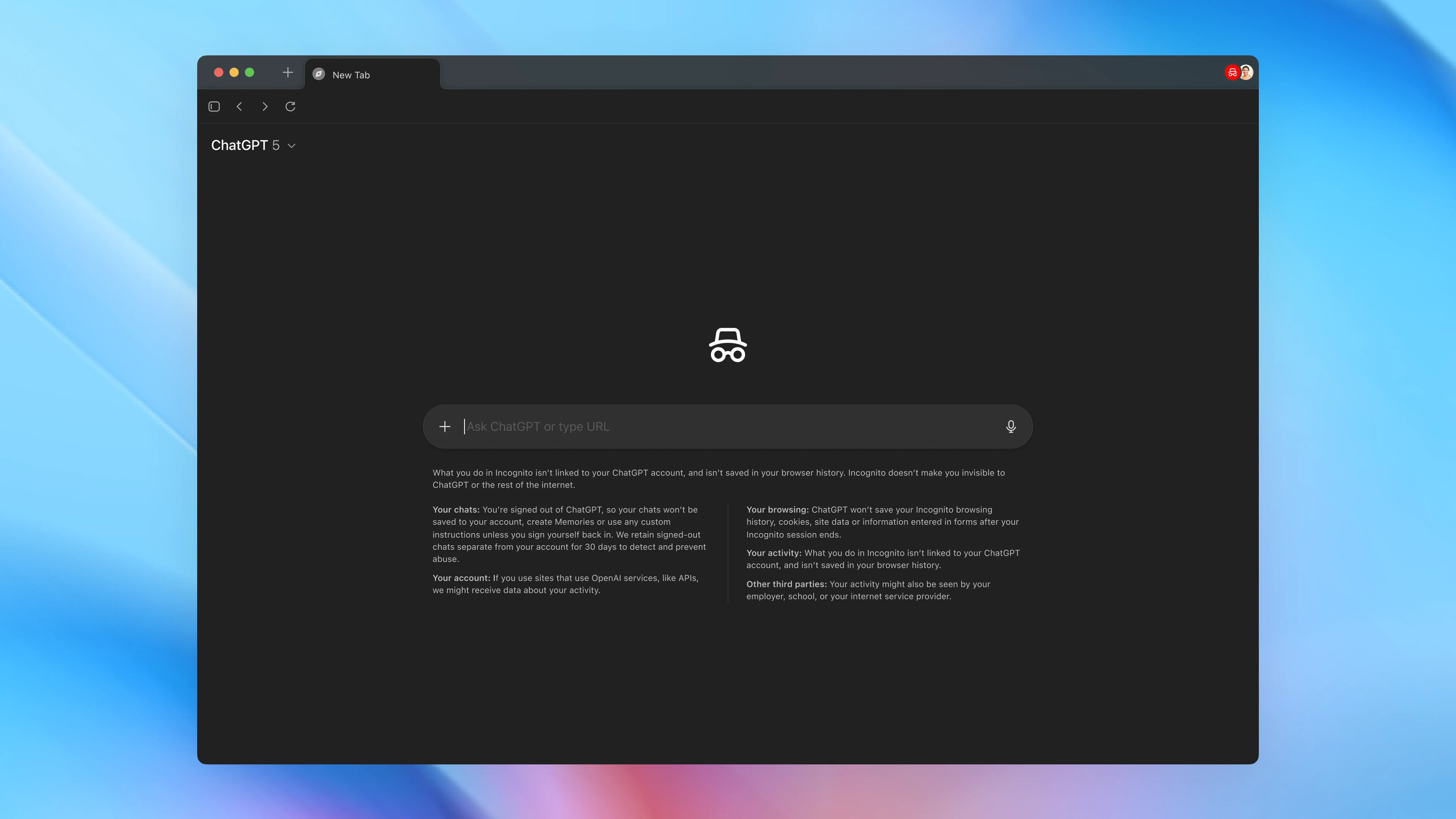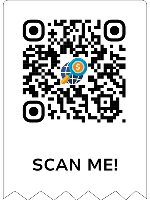You have likely used the same web browser for years. It’s become a habit, a reflex even, to open your computer and click that familiar icon. But what if the way you access the internet is about to change completely?
OpenAI has released a browser called ChatGPT Atlas, and it’s a big deal for everyone.
This is not just another browser with a few new tricks. It is a ground-up reinvention of how we find information and get things done online. Let’s look at what the new ChatGPT Atlas browser means for you and your daily internet use.
Table Of Contents:
- What Is ChatGPT Atlas?
- How is It Different from Google Chrome?
- The Game-Changing Feature: AI Agents
- The Privacy Nightmare: Who Owns Your Data?
- The Battle for the Web’s Front Door
- Is This the End of Google As We Know It?
- What This Means for You
- Conclusion
What Is ChatGPT Atlas?

ChatGPT Atlas is a new desktop web browser created by OpenAI. The Atlas browser puts the power of ChatGPT at the core of your online user experience.
The goal is to change the browser from a simple tool to a true assistant. OpenAI’s CEO, Sam Altman, described it as a place where your work and various AI tools come together. He believes a browser built around ChatGPT gets us closer to a super-assistant that understands what you want to do before you even finish typing.
This browser is an attempt to become the new starting point for everything you do online. This means websites, social networks, and other services all funnel through it. It is a bold move because another company has owned that starting point for a very long time, and the Atlas offers a fundamentally new approach to web browsing.
How is It Different from Google Chrome?
You might be thinking that your Google Chrome browser already has AI in it. That is true, but the approach is completely different. Google is adding its Gemini AI to its existing products, while OpenAI built Atlas around its AI from day one.
When you open Atlas, you see a ChatGPT search bar, not the familiar Google search bar. The entire home screen encourages you to ask questions or give the AI tasks to handle. This makes it feel more like a conversation than a search, altering the fundamental nature of the default search engine.
There is also a handy button at the top that opens ChatGPT in a sidebar. You can ask the ChatGPT sidebar to summarize the page you’re on or explain a confusing term without leaving your current tab.
You just highlight the text and ask, “what’s this,” making research and learning much faster than before.
A Quick Feature Showdown
Seeing them side by side shows the different philosophies. One is AI-integrated, while the other is AI-native. This distinction makes a huge difference in how you use them and what you can accomplish.
| Feature | Google Chrome (with Gemini) | ChatGPT Atlas |
|---|---|---|
| Default Search | Google Search, with AI summaries added. | ChatGPT conversational search is the default. |
| AI Access | Accessed through menus or specific prompts. | AI is the home screen and a persistent sidebar. |
| Page Summarization | Yes, using Gemini. | Yes, via a dedicated sidebar feature. |
| Task Automation | In development (Project Mariner). | Built-in “Agent Mode” for completing tasks. |
| Core Experience | Traditional browser with AI features added on. | AI-powered assistant that also browses the web. |
The Game-Changing Feature: AI Agents
This is where ChatGPT Atlas separates itself from the pack. It has something called agent mode, powered by what are known as AI agents. This is more than just answering your questions; it is about taking action on your behalf.
For example, you could ask your ChatGPT agent, “Find me a casual bar near a subway stop in my neighborhood with good drink deals.”
It will not just give you a list of links to sort through. Instead, it will find a suitable bar, check for happy hour, and even ask what time you want to book a table for.
This shifts the entire paradigm of what a browser does. Current browsers help you find information so you can complete a task, while Atlas wants to complete the task for you. These browser agents represent a future where you spend less time clicking and more time doing, from filling forms automatically to planning complex trips.
The concept is not entirely new, but its integration into a major browser is. The idea of autonomous AI agents has been a major goal in artificial intelligence for a while. Atlas is one of the first products to put this power into the hands of everyday users, truly letting AI take the wheel for mundane tasks.

The Privacy Nightmare: Who Owns Your Data?
With great power comes great responsibility, and the data-gathering capabilities of an AI browser are immense. As Atlas takes on more of your digital life, from managing your browsing history to handling payment info, serious questions about privacy arise. This potential for a privacy nightmare is a critical aspect to consider before you set your default browser settings to Atlas.
OpenAI’s privacy policy will be under intense scrutiny. The company will need access to a significant amount of your user data to make its AI agents effective. This includes not just your search queries but also the main content of the pages you visit, how you interact with them, and potentially even your saved passwords and keychain access for seamless logins.
A major concern is how this data will be used. AI companies need vast amounts of information to train AI models. Will your personal browsing history become training data? The line between personalizing your experience and exploiting users’ data is thin, and the level of company control over your digital footprint will be unprecedented.
Before you download files and install this new browser, you should carefully review the privacy risks. Unlike traditional browsers, where histories are mostly stored locally, an AI browser sends much more information to company servers. This new AI era requires us to be more vigilant than ever about how our information is used by tech giants and social media companies.

The Battle for the Web’s Front Door
For over two decades, Google has controlled the front door to the internet. It is a position that has made them one of the most powerful companies in history. But now, OpenAI is knocking on that same door with a browser called Atlas.
Why does this fight matter to you? Because whoever controls search controls how billions of people find information. It influences which businesses, from small blogs to large media companies, succeed and which ones fail. It even shapes our understanding of the world, based on the information it presents.
Google Chrome is unbelievably dominant, accounting for the vast majority of all web traffic. That is a huge market to break into, but OpenAI is betting that its AI features are a strong enough reason for people to switch.
In the early days of the internet, the browser wars were about speed and features, but today, they are about intelligence.
We are already seeing signs that user behavior is changing. Studies show that people are less likely to click on website links when an AI summary appears at the top of Google Search results. People want quick answers, and the ChatGPT work model is built around giving them just that, often bypassing traditional websites entirely.
Is This the End of Google As We Know It?
Let’s be realistic: Google is not going anywhere overnight. They have billions of users, incredible talent, and a massive amount of data. They are fighting back hard by weaving their own AI, Gemini, into every single one of their products, from the search browser to their workplace apps.
But ChatGPT Atlas arrives at a sensitive time for Google. The company is facing a huge antitrust case from the Department of Justice. A central theme of that case is whether Google has an unfair monopoly over search, and AI is a huge part of that conversation.
Court documents from the trial showed that the judge is very concerned about Google’s dominance carrying over into the AI space. OpenAI’s browser launch introduces exactly the kind of competition the government wants to see. It changes the narrative and gives consumers a real, viable alternative.
What is fascinating is that OpenAI seems to be using Google’s old strategy. Google started with search and then expanded into a browser (Google Chrome), an operating system (Android), and more.
OpenAI started with a chatbot, available by selecting web browsing within the app, and is now expanding with OpenAI’s browser, with ambitions for consumer hardware in the future.

What This Means for You
The biggest immediate change is that you have a real choice for the first time in a long time. The competition between Google and OpenAI will force both companies to innovate faster. That is a great thing for all of us, leading to better AI tools and a more helpful internet.
You can expect a much more personal internet experience. These AI browsers and assistants will learn your preferences and context. They will help you manage your digital life in ways that were impossible just a few years ago.
But there are also questions you should ask. How will this impact your privacy? What happens to the thousands of websites and creators who rely on search traffic if no one clicks links anymore? Answering these questions will be a big challenge as this new technology rolls out.
Getting Started and Staying Safe
If you decide to try the new Atlas browser, first, you will need to find the official download and install it on your computer. Once installed, you can open settings to customize your experience and import your bookmarks and browser history from another browser.
You will be prompted to set default browser settings. If you agree, any link you click will open in Atlas. Be prepared for a different experience; if you encounter a connection error or a connection termination, check your network settings, as AI features can sometimes require more stable connections.
When using it for the first time, take a moment to explore. Try asking the ChatGPT sidebar to summarize a long article or ask the main address bar a complex question. As you choose site options and browse, be mindful of what information you are sharing, especially when you sign up for new services or enter sensitive financial details.
Conclusion
The quiet and comfortable world of web browsers is over. OpenAI’s ChatGPT Atlas is not just an update or a new feature. It represents a completely different vision for how we should interact with the internet, moving from a passive tool to an active partner.
Whether it succeeds in taking a piece of Chrome’s massive empire remains to be seen. But one thing is for sure: the launch of ChatGPT Atlas signals that the fight for the internet’s future has officially begun. Your browser is the battlefield, and your choice will shape the next era of the digital world.






